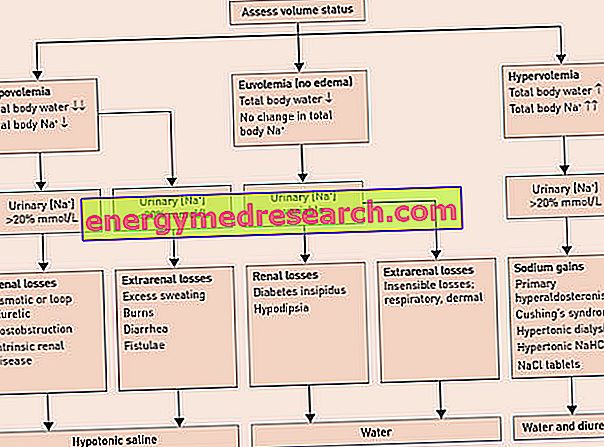Related articles: Prostate cancer
Definition
Prostate cancer is one of the most common types of cancer in humans and becomes more common as we age. Generally the tumor progresses very slowly and in the early stages of its development remains confined to the prostate. For this reason the initial symptomatology is very scarce, non-specific and similar to that of benign prostatic hypertrophy, to which it is often accompanied. Let us not forget, however, that some prostate cancers can grow rapidly and become very aggressive, which is why after 50 years it is a good rule to undergo periodic screening, even in the absence of symptoms. This recommendation is also linked to the fact that - due to the initial absence of symptoms - prostate cancer is often not discovered as long as it does not attack other organs, making its treatment much more difficult and less effective.The primary prevention of prostate cancer is based on the adoption of a more active lifestyle and a diet low in saturated fats and rich in vegetables (remember the protective effect of lycopene, a carotenoid mainly found in tomatoes and derivatives).
Most common symptoms and signs *
- Anejaculation
- Anuria
- Dysuria
- Bone pain
- Asthenic ejaculation
- Painful ejaculation
- Retrograde ejaculation
- Bone fractures
- Swollen legs
- Fecal incontinence
- Increased blood urea
- nocturia
- Multiple pulmonary nodules
- Nodule
- Solitary pulmonary nodule
- Urethral leaks, sometimes visible only after squeezing the glans
- Polyuria
- pollakiuria
- Priapism
- Penis size reduction
- Urinary retention
- Blood in the ejaculate
- Blood in the urine
- Spermatorrea
- Strangury
- Hot flashes
Further indications
When present, the symptoms depend on the severity, development and spread of the tumor. The urinary disorders listed above are typical of benign prostatic hypertrophy, prostatitis and urinary tract infections, while they are less common in the early stages of prostate cancer; if they appear, it is still important to promptly report them to your doctor. Symptoms such as bone pain (often localized to the vertebrae, ribs or pelvis), swelling of the lower limbs, weakness of the legs, urinary and faecal incontinence, appear only at an advanced stage, as a result of its spread to other parts of the body.



